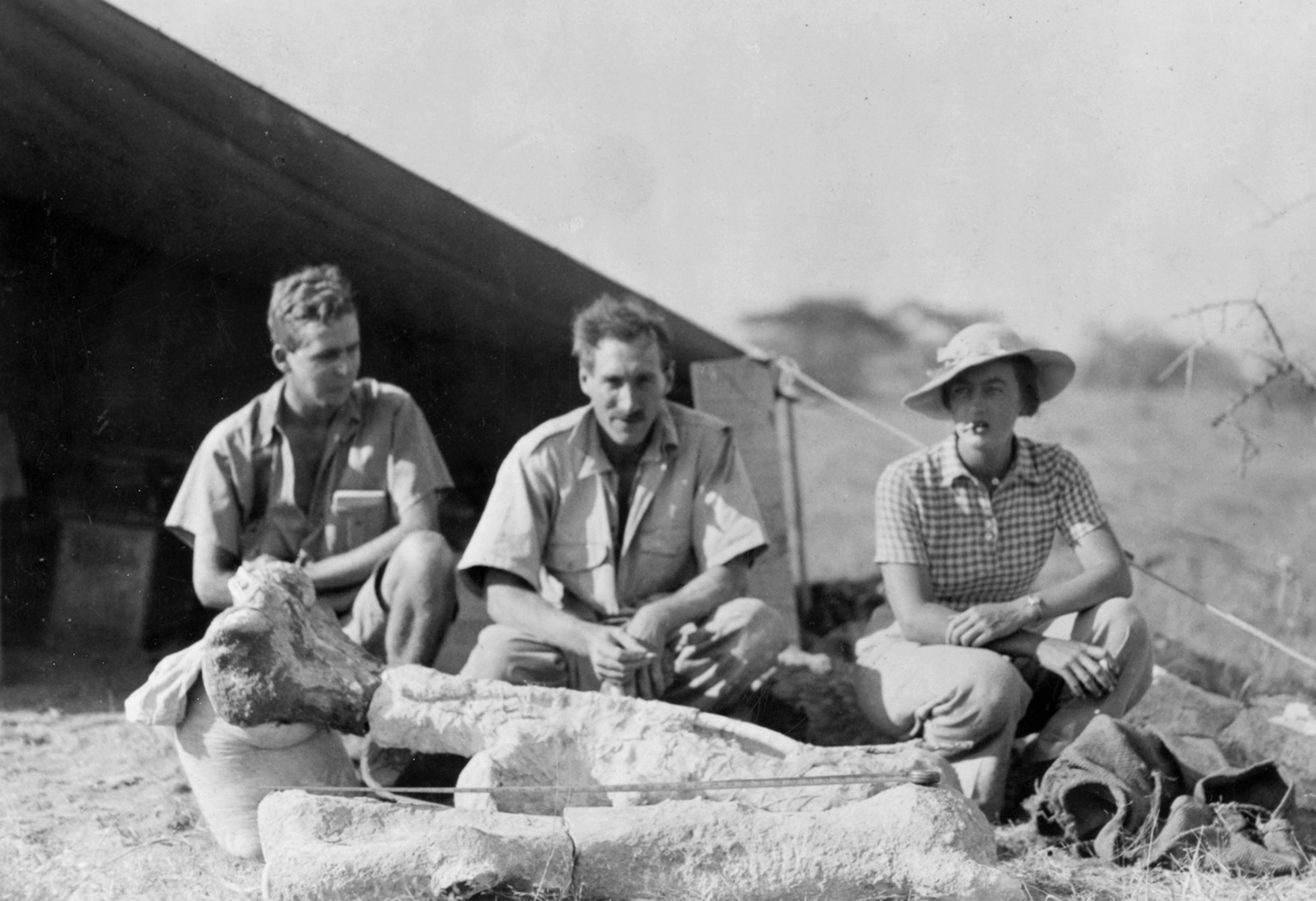
Why It's Crucial to Get More Women Into Science
Amid growing signs that gender bias has affected research outcomes and damaged women's health, there’s a new push to make science more relevant to them.
This story was updated on January 21, 2015, to include a video of the author addressing the Rosalind Franklin Society, a women's leadership group, about the experience of reporting and writing this story.
James Gross, a psychology professor at Stanford University, has a 13-year-old daughter who loves math and science. It hasn't occurred to her yet that that's unusual, he says. "But I know in the next couple of years, it will."
She's already being pulled out of class to do advanced things "with a couple of other kids, who are guys," he says. And as someone who studies human emotion for a profession, Gross says, "I know as time goes on, she'll feel increasingly lonely as a girl who's interested in math and science"—and be at risk of narrowing her choices in life before finding out how far she could have gone. (See "In Her Words: Sylvia Earle on Women in Science.")
Gross's concern speaks volumes about what has been a touchy subject in the world of science for a long time: Why are there still so few women in science, and how might that affect what we learn from research?
Women now make up half the national workforce, earn more college and graduate degrees than men, and by some estimates represent the largest single economic force in the world. Yet the gender gap in science persists, to a greater degree than in other professions, particularly in high-end, math-intensive fields such as computer science and engineering.
According to U.S. Census Bureau statistics, women in fields commonly referred to as STEM (science, technology, engineering, mathematics) made up 7 percent of that workforce in 1970, a figure that had jumped to 23 percent by 1990. But the rise essentially stopped there. Two decades later, in 2011, women made up 26 percent of the science workforce.
It's not that women aren't wanted. "I don't know any institution today that is not trying to hire more women scientists and engineers," says one science historian. But many cultural forces continue to stand in the way—ranging from girls being steered toward other professions from an early age and gender bias and sexual harassment in the workplace to the potentially career-stalling effects on women of having children.



So what difference does it make when there is a lack of women in science? For one, it means women might not get the quality of health care that men receive.
It's now widely acknowledged that countless women with heart disease have been misdiagnosed in emergency rooms and sent home, possibly to die from heart attacks, because for decades what we know now wasn't known: that they can exhibit different symptoms from men for cardiovascular disease. Women also have suffered disproportionately more side effects from various medications, from statins to sleep aids, because the recommended doses were based on clinical trials that focused largely on average-size men.
Such miscalculated dosages often have not been discovered until the drugs were on the market. Just last year, the U.S. Food and Drug Administration advised women to cut their doses of the sleeping pill Ambien in half, after learning that the active ingredient in the drug remained in women's bodies longer than it did in men's.
Was the oversight in medical research deliberate? No, many scientists say. There was simply a routine procedural bias not to include sex as a variable in scientific research.

For generations, the model used in biomedical research to design drugs and products for everyone has been predicated on the physiology of an average-size male, historically the standard reference figure in Gray's Anatomy, the medical textbook first published in the 1850s.
Even the rats (and other animals) used in scientific experiments have mainly been male. For years, many researchers were concerned that hormone fluctuations in female animals would skew the results of tests, and simply assumed that males could be used to reliably predict effects in both men and women. As a result, "sex, the biggest variable, has not been systematically evaluated and reported in the same way as variables like time, temperature, and dose, even in diseases that are female dominated," says Teresa K. Woodruff, director of the Women's Health Research Institute at Northwestern University.
The National Institutes of Health (NIH), the primary U.S. agency responsible for health-related research, is now correcting this procedural bias. It announced in May that the researchers it funds would be required to start testing theories in female lab animals and female tissues and cells, and to consider sex as a variable in experiment design and analysis.
Woodruff describes the new policy as a "paradigm shift" and "cataclysmic."
"This is categorically the most important thing to happen at NIH, and therefore for the long-term health of America, since 1993, when women were mandated by Congress to be included as participants in clinical research," she says.
The new policy addresses gender bias much earlier in the research pipeline, before testing is done on humans.
A study by McGill University in Montreal last spring generated a lot of hoopla about the role of gender in research, but from a different perspective.
The study found that rats and mice being tested for pain response apparently were afraid of male researchers; it had something to do with how the men smelled. The rodents were so stressed by the male researchers—or even female researchers wearing shirts the men had slept in—that they became desensitized to pain, thus throwing off the test results and raising questions about previous studies in which lab animals were handled by male researchers.
In this case, it wasn't the sex of the lab rats, but of their handlers, that made a difference—another variable that simply hadn't occurred before to anyone.
Gender and the Nature of Discovery
The new NIH stance is what Stanford science historian Londa Schiebinger calls a "gendered innovation," which will make science more relevant to women.
"We can be interested in women and science, and their participation, and how many are here and there," she says. "But the big difference is, what knowledge and technologies do you have? What's the outcome? Who are things designed for?"
Schiebinger is a leader in the Gendered Innovations movement, an international collaborative made up of natural scientists, engineers, and gender experts. Its goal, her project website says, is to "harness the creative power of sex and gender analysis to discover new things."
The website features a couple dozen case studies that, among other things, examine how taking gender into account in research can make a difference in areas such as stem cell work, technologies to assist the elderly, and better diagnosis and treatment of osteoporosis in men, "a huge population" Schiebinger says is being overlooked.
One example involves making public transportation more efficient and responsive.
The gendered innovation would be to have civil engineers, when gathering data to formulate bus and train schedules, consider what Schiebinger calls "the mobility of care"—how people travel in the course of their day to tend to children, the elderly, and households. It's not a typical category of analysis.

Women and men who travel only for employment tend just to go back and forth between home and job. But many also do caring work. "They tend to travel from home to the day care to work," she says. "On the way home they may go food shopping, to the dry cleaners, back to the day care, and home again."
Schiebinger notes that scientists are responding, and that new findings emphasizing the importance of gender in research are continuing to emerge.
One research team testing stem cell therapy on mice had to set aside the study after all the male mice died unexpectedly. The researchers had correctly used male and female mice, Schiebinger says, but "quite unconsciously" only female stem cells. After hearing Schiebinger speak at an event in Norway, a member of the research team told her, "Oh! We probably should have used male and female stem cells."
Twenty years ago, "nobody wanted to listen to me," Schiebinger says. They're listening now.

The Power of Collaboration
Including gender in research could attract more women to science as well, Schiebinger says, because careers and avenues of research suddenly can become relevant to women.
She says that as more women get involved in the sciences—or any field historically dominated by men—the general knowledge in that field tends to expand.
"There are lots of places where you can show the direct link between increase in number of women and outcome in knowledge," she says. "History, primatology, biology, medicine."
It's an idea that dovetails with a major shift that has taken place in how scientific inquiry is being carried out by research teams.
"Collaboration is now the foundation of much of STEM research ... this is a huge change," says Beth Mitchneck, who runs the National Science Foundation's ADVANCE program, which supports women in the academic sciences and promotes institutional change.
In science, the stereotypical image of research geniuses making discoveries while working solo has given way to a more collaborative model, in which research is done by teams. Increasingly, these teams are being made up of scientists from different fields.
That's what happened on the Human Genome Project, whose goal was the complete mapping and understanding of all the genes of human beings. It drew researchers from fields that included biology, chemistry, genetics, physics, mathematics, and computer science.
Involving more qualified women, as well as additional "social identities"—gay people, African Americans and Latinos, those with physical disabilities, and others—can enrich the creativity and insight of research projects and increase the chances for true innovation, says Scott Page, a professor at the University of Michigan who studies diversity in complex systems.
In this sense, the corporate world is evolving more quickly than the science world.
According to the Atlantic Monthly magazine's cover story in May, "Half a dozen global studies, conducted by the likes of Goldman Sachs and Columbia University, have found that companies employing women in large numbers outperform their competitors on every measure of profitability."

The Internet's "Bro-Coding" Culture
Computer science is one field with very low participation by women. Half or more Internet users are women, and women are known to be early and enthusiastic adopters of most technologies. But the number receiving related bachelor's degrees, for example, actually has been declining; women now make up less than 20 percent of such graduates, based on the latest data analyzed by the National Science Foundation.
As a result, the Internet is being built primarily by white and Asian men. Much of the industry supporting it involves a "bro-coding," Silicon Valley culture in which you're expected to be working even when you're not working.
"You can ask, 'Does that have implications?' " says Page, referring to the homogeneity of the tech workforce: implications for, say, how social media sites such as Twitter and Facebook are organized or for a dating site that's being written largely by straight men. Even if the programmers carefully study the best science they can find, he says, "it's hard to imagine that how they interpret it isn't gendered in some way."
There aren't a lot of women in engineering either (though the numbers vary by subdiscipline, with electrical and mechanical engineering reflecting few women and civil, biological, and chemical engineering showing more). Women received 45 percent of all math- and science-related doctoral degrees in 2012; only 22 percent were in engineering.
What difference does that make?

What we think of as "science problems" affect everyone—children, women, and men. What science decides to solve and for whom things are designed have a lot to do with who's doing the scientific inquiry. Will there be more push to develop drugs for male-pattern baldness or for a seat belt that won't cause further injury, or death, to pregnant women and their fetuses in car crashes?
Analysts say that more women are needed in research to increase the range of inventions and breakthroughs that come from looking at problems differently than men typically do.
"Look at what's being developed in engineering with 'smart houses,' " says San Francisco State University provost and gender studies professor Susan Rosser. "You get your heat connected and lights turned on and alarm systems set. They're all about control. It's not like what a woman might want"—or be more likely to think of. "Like, can we invent something where the house cleans itself?"
It's certainly not that men couldn't invent a house that cleans itself, she says. They just may be less likely to rank it as high as women might in the hierarchy of possibilities, if they think of it at all.
That women are also raised to be more socially aware than men points to another largely untapped quality in women, particularly in the realm of leadership. What difference might broader emotional intelligence make?
As a rule, says Gross, the Stanford psychologist, women tend to exhibit more "communal" qualities (fostering good relations to build community, creating an inclusive environment), while men tend to exhibit more "agency" qualities (taking leadership, making things happen). Having women's emotional skills in the mix, he says, can yield "immensely positive" results in scientific research.
Women are well-represented in biological sciences, psychology, and medicine (especially the "three p's"—pediatrics, primary care, and psychiatry, branches that typically involve lower pay and more contact with patients than other medical professions). Iranian-born American mathematician Maryam Mirzakhani of Stanford recently became the first woman to win the world's "Nobel Prize" of mathematics, the Fields Medal, since it was established in 1936.
But even in areas in which the number of women in science is high, they are not proportionally represented among its leaders.
We don't want to just have more talented women, Gross says. We want to make sure that women with well-developed skills don't end up—and it happens all the time—stuck at lower levels working in labs. (See also: "Six Women Scientists Who Were Snubbed Due to Sexism.")
"You need them at leadership positions," he says, "directing the field."

A Daughter's Future
James Gross, the Stanford psychology professor, has a vision. It's of a world in which talented girls and boys feel free to pursue lives historically perceived as not appropriate for their gender—"for the simple reason that it's better for them and it's better for society."
In the meantime, he's doing what he can to encourage his 13-year-old daughter to remain open to developing all of her math and science talents—even as she comes to realize how unusual it is for a girl to choose that path, and how lonely it might be.
But he knows there's only so far he can take her on his own.
Have you experienced sexism in your career? Share your story with us.